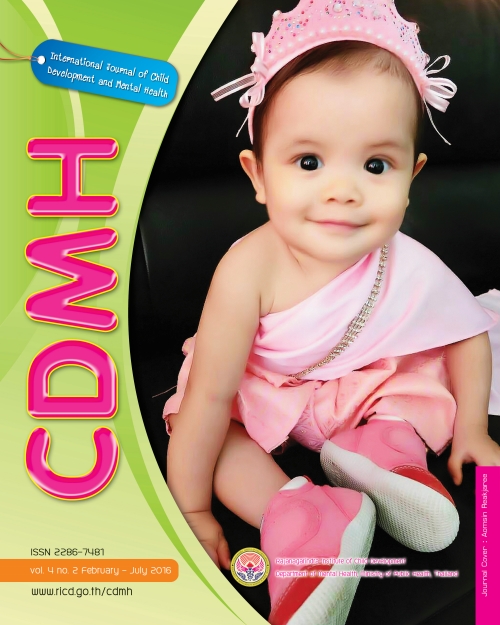Effectiveness of Play Therapy on Family Stress, Coping and Selected Variables of Children with Disruptive Behaviour Disorders
Main Article Content
Abstract
Children with Disruptive Behaviour Disorder (DBD) often have an impaired ability to relate to others appropriately due to poor social skills and behaviours that others find offensive. This impairment may be due to a combination of how core symptoms compel children with DBD to respond to others, and how others respond reciprocally to disruptive behaviour. This leads to strenuous child parent relationships, increasing family stress and further affects the child’s behaviour. The current study focused on assessing the behaviour problems of children with DBD, and secondly, evaluated the effectiveness of play therapy on child variables: anger, aggression and social competence, and parent variables: family stress and coping. A quasi experimental design was used. 42 children with DBD and their parents were selected, using convenience sampling. Both groups underwent pre assessments using a semi structured interview for children and parents, DBDRS, AACL, VAS, FAS & SDQ. After pre assessments, the experimental group received play therapy with Parent Management Training (PMT-Usual treatment) and the control group received PMT, in 8-15 sessions, two sessions per week, for 45 minutes to 1 hour duration. Post assessment was conducted using the same instruments for both groups, 1 week after the last session. Additional assessment of play observation on the experimental group was conducted during play therapy sessions. The data was analyzed using descriptive and inferential statistics. Play therapy has a significant beneficial impact on anger, aggression, social competence, family stress and coping in children with DBD & their families. In conclusion, the study demonstrates that behaviour therapy contributed to issues relating to parent management techniques, whereas the use of play helped the parents at a specific level to connect to their child in joyous, process-based activities, where there is no pressure of correct outcomes, thus enabling the child to experience a more loved and validated sense of personhood
Article Details
![]()
Creative Commons License
This work is licensed under a Creative Commons Attribution-NonCommercial-No Derivatives 4.0 International (CC BY-NC-ND 4.0)
The authors retain copyright and permit the journal the copyright of first publication
Articles, once having passed the review process and accepted for publication in the CDMH Journal, are copyrighted under the CDMH Journal, Department of Mental Health, Ministry of Public Health. Please be aware distribution of CDMH Journal content for commercial purposes without permission is expressly prohibited. However, distribution with intent to educate, advocate, or spread awareness within the general public and research communities is permitted and encouraged with the understanding that the CDMH Journal Editorial Board do not hold jurisdiction or liability for any accompanying comments, text, or information from third parties, either in favor for or against the original article’s assertions, conclusions, methodology, or content.


